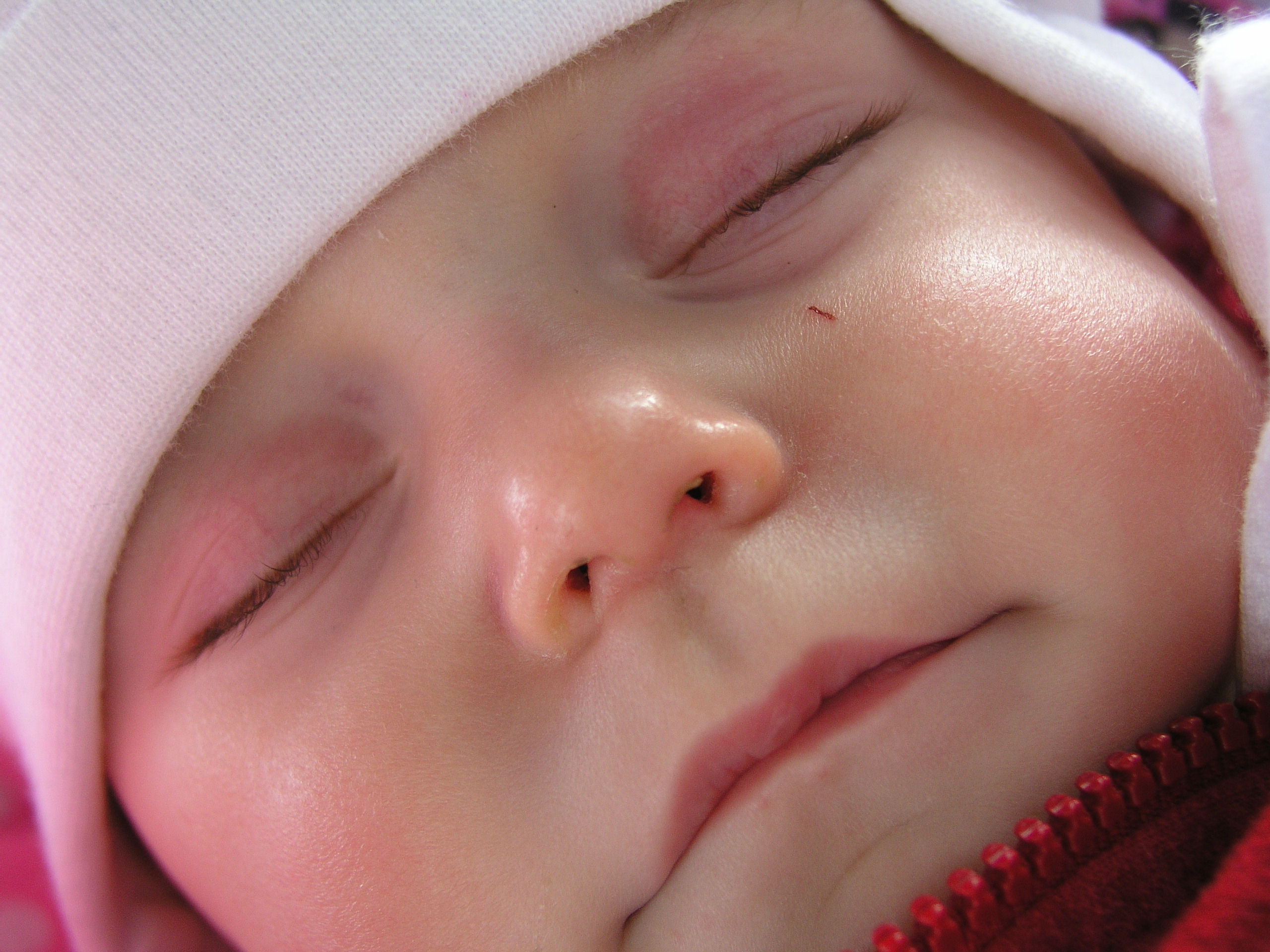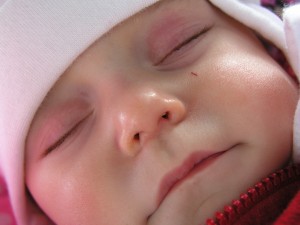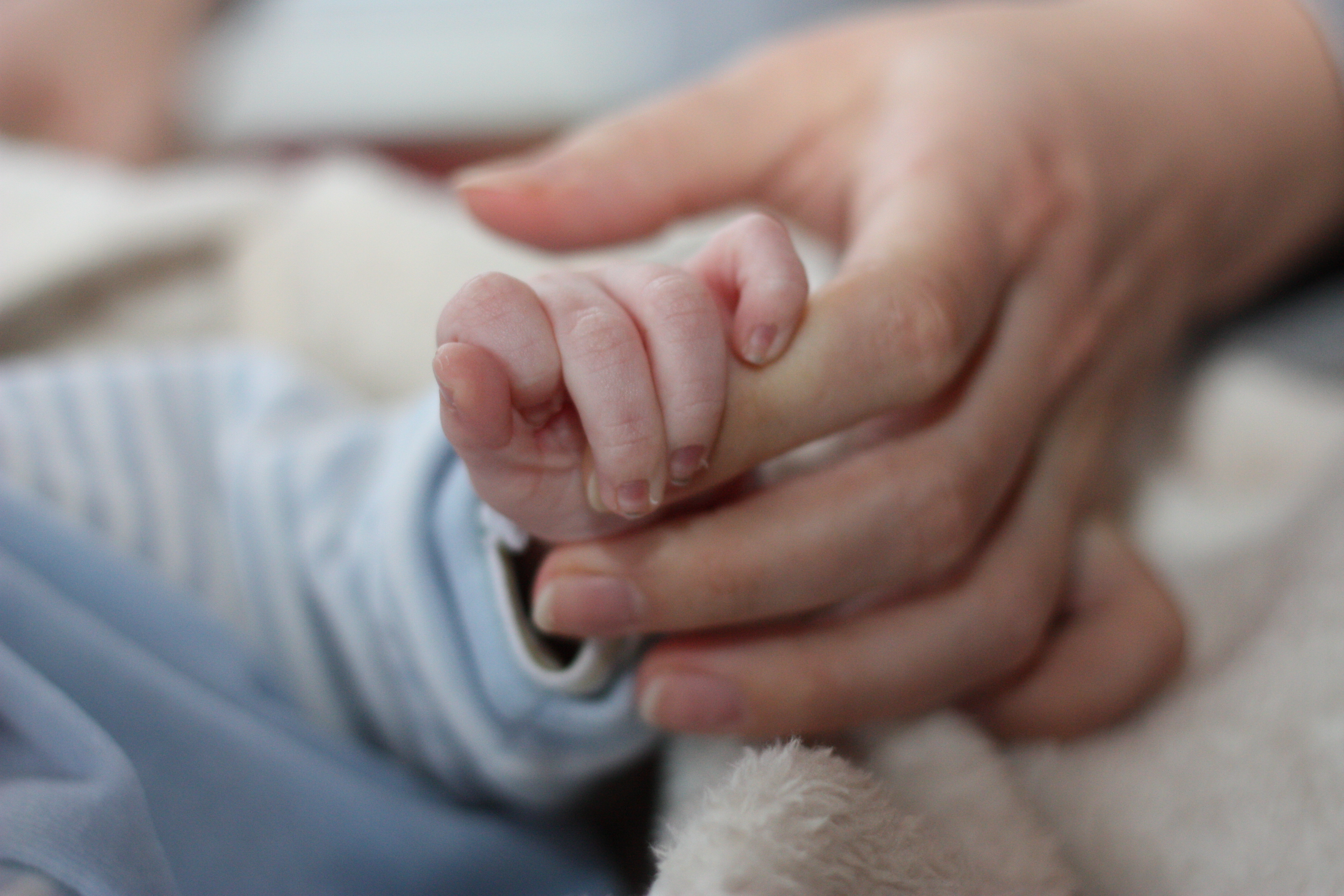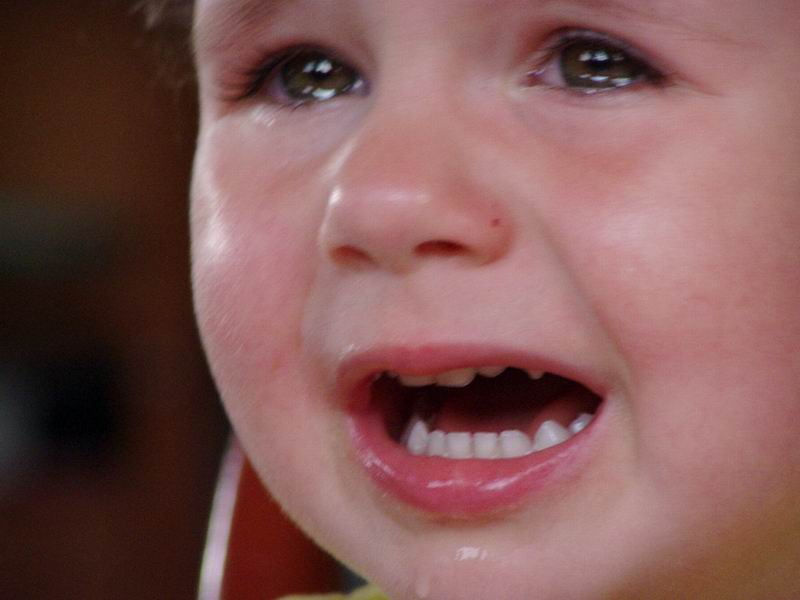The symptoms of a cold for a baby are fairly similar to that of an adult. However, they are very limited as to the medications they can take and because their breathing passages are so small, it can be more serious. Children who are in a day care setting are more likely to catch a cold, as are siblings of school-aged children.
The stuffy nose, cough and eyes with dried mucus are classic signs of the common cold. Unfortunately, there is no cure for this, even in babies and they often feel more miserable while they are sick than an adult or older child would. Running a humidifier in the room where they are can help them breathe easier and allowing your baby to sleep somewhere like a car seat or swing could limit the congestion they feel.
Suctioning excess mucus from their nose will probably make your baby cry and feel angry, but will help them sleep better. If your baby is under the age of eight weeks, it is very important to contact your pediatrician. Newborns are at increased risk of dehydration and their colds could develop into something more serious very quickly. You should also contact the doctor if the fever goes higher than 102 degrees Fahrenheit or if the cold lasts more than about two weeks. Of course, these are only estimates and many doctors have different guidelines, so you may want to call and see if the doctor needs to see your baby.
What to Look Out For
Because babies are so tiny and their immune systems may still be developing, a cold can quickly turn into an ear infection, bronchitis and even pneumonia. If the symptoms change, they tug at their ear or they are hungry, but won’t take a bottle you may need to seek medical care.
There is not any one thing that you can do to prevent a cold, but frequent hand-washing and disinfecting their toys, crib, sheets and car seat or stroller covers can eliminate the germs they have now, which can keep them from getting the same cold in a week or two. An unfortunate fact of life for babies is that immediately after getting over an illness, they may be at increased risk of getting sick again because their immune system is not fully recovered.
For discomfort or fevers, babies over the age of eight weeks may be allowed to take infant doses of ibuprofen (Advil) or acetaminophen (Tylenol). Your doctor will be able to tell you the correct dosage.






